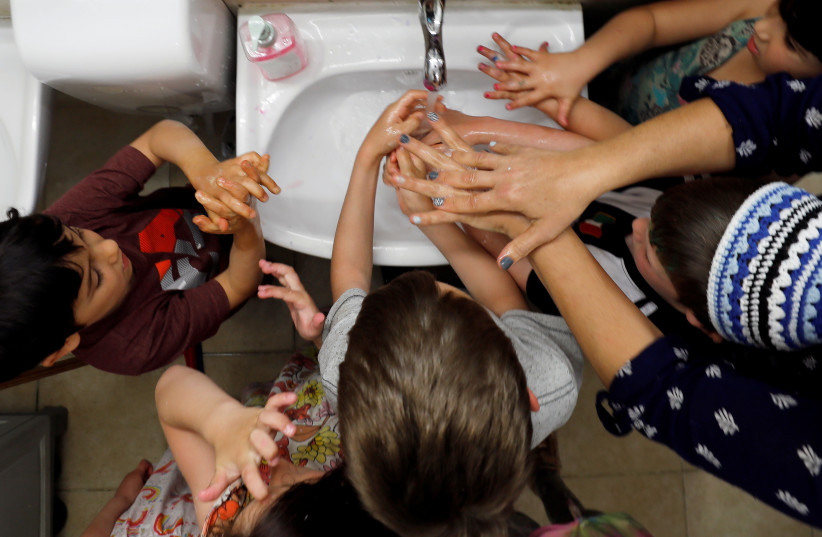Children catch colds 6-8 times a year on average: double the average of adults. When they're very small, a small thing like a stuffy nose or a cough can keep babies up all night, yet despite that, there are very few proven effective remedies to relieve cold symptoms in kids and babies.
So what should you give kids with colds?
The shelves of pharmacies carry a wide variety of medicines and syrups to relieve cough, nasal congestion and other cold symptoms. However, a review published in the medical journal BMJ shows that these remedies aren't really effective. Some, such as medicines to relieve congestion, aren't allowed at all for babies, kids and pregnant women.
What's recommended to treat a blocked, runny nose is a saltwater rinse, which is available as drops and in a spray. The saltwater helps clear the mucus from the respiratory tract and since it's completely natural it has no side effects that could harm kids and babies.
What to stay away from

As mentioned, medicines to relieve congestion (medicines that constrict the blood vessels in the nose so it relieves the irritation and congestion that create a blocked nose) aren't suitable for children under 12 years old because they are anesthetizing and may cause stomach problems.
Even adults shouldn't use them for more than a week because they may cause headaches, insomnia and even permanent dependence on the medication.
As for cough syrup, there are several studies from recent years that indicate that there is little evidence to show that they're effective. Doctors say that even if they were effective, they wouldn't recommend them for kids because then their effect would prevent kids from clearing the phlegm from their airways through coughing.
Antibiotics can be very effective, but only in the case where the cause of the disease is a bacterium like for some throat infections. For colds, flu and some sore throats, the cause is viral and so antibiotics are unnecessary and dangerous because the unchecked use of antibiotics is one of the contributing factors to causing resistant bacteria, one of the biggest challenges now facing the world of medicine.
Do home remedies help?
Studies haven't tested the effectiveness of home remedies, but there are definitely many which are not worth taking a risk.
Humidifiers, Echinacea, Probiotics and Eucalyptus oil, for example, are some home remedies that have actually been proven to be ineffective.
Nutritional supplements such as vitamin C, zinc and garlic haven't been proven to help prevent winter illnesses or speed recovery from them. Honey can slightly relieve a cough, though.
When do you go to the doctor?
The following conditions should be met in order to justify going to the doctor:
- If the child has a fever above 38.5 degrees
- If there's a skin rash that doesn't go away
- If there's no improvement in symptoms after a few days
What else to do?
Here are some basic recommendations good for anyone feeling unwell:
- Drink a lot of water to avoid dehydration
- Wear warm clothes and wrap kids in blankets
-Wash your hands with soap and warm water frequently to help prevent the spread of viruses at home
-Throw used paper towels straight into the trash
Prevention is also crucial. This can be done by giving kids the flu vaccine, for example, to ensure that they get through the winter relatively easily.
